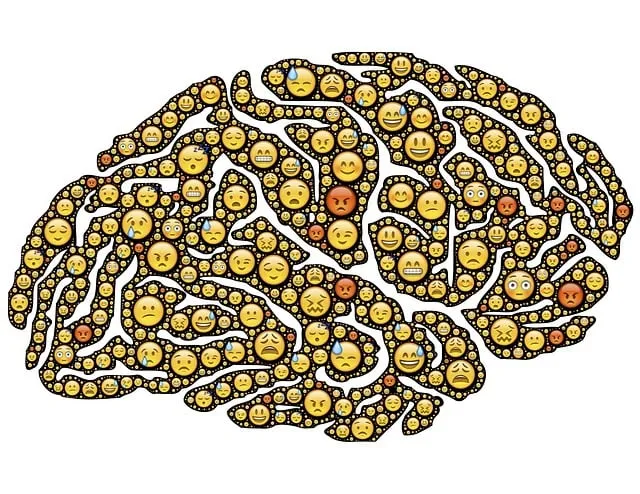Kaiser mental health classes in Boulder empower individuals with tools to prevent substance abuse through emotional intelligence, stress management, and cognitive-behavioral therapy. These classes, addressing genetic predispositions, environmental factors, and mental health conditions, foster resilience and reduce reliance on harmful substances. By offering comprehensive education, social support, and burnout prevention for healthcare providers, these initiatives create healthy communities and mitigate risks of substance abuse.
In Boulder, where awareness of mental health is paramount, understanding and mitigating substance abuse risks are crucial steps towards a healthier community. This article explores comprehensive risk reduction strategies, beginning with recognizing the signs of substance abuse early on. We delve into evidence-based approaches, including Kaiser Mental Health Classes, designed to build resilience and offer tools for at-risk individuals. Additionally, we highlight the power of community support networks in fostering environments that discourage substance abuse.
- Understanding Substance Abuse Risks: A Foundation for Prevention
- Early Intervention: Identifying Signs and Reaching Out
- Kaiser Mental Health Classes: Tools for Building Resilience
- Evidence-Based Strategies to Mitigate Behavioral Addictions
- Community Support Networks: Fostering Healthy Environments
Understanding Substance Abuse Risks: A Foundation for Prevention

Understanding Substance Abuse Risks is a crucial foundation for prevention strategies. According to research and services provided by organizations like Kaiser Mental Health classes in Boulder, substance abuse often arises from a complex interplay of genetic predisposition, environmental factors, and mental health conditions. By recognizing these risks early on, individuals can be empowered to seek support and implement effective risk reduction tactics. This proactive approach is vital for fostering healthier choices and averting potential crises.
In the context of Boulder’s vibrant community, where self-care practices and conflict resolution techniques are readily accessible, individuals have valuable resources at their disposal. Incorporating self-awareness exercises into daily routines can help unravel the underlying triggers contributing to substance abuse. Through increased self-understanding, folks can develop coping mechanisms that promote resilience and reduce reliance on harmful substances.
Early Intervention: Identifying Signs and Reaching Out

Early identification is key when it comes to addressing substance abuse issues. The moment a person shows signs of struggling with addiction, whether it’s erratic behavior, changes in mood, or declining performance at work or school, it’s crucial to reach out and offer support. The Kaiser mental health classes in Boulder provide valuable resources for individuals and families navigating these challenges. These classes not only educate but also foster an environment where those affected can connect with peers and professionals who understand their experiences.
By implementing early intervention strategies, such as those offered by Kaiser’s mental health programs, burnout prevention becomes more manageable. Healthcare providers in particular can benefit from crisis intervention guidance to handle these situations effectively, ensuring they offer the right support without compromising their own well-being. This holistic approach not only aids in substance abuse reduction but also promotes the implementation of effective burnout prevention strategies for healthcare providers.
Kaiser Mental Health Classes: Tools for Building Resilience

Kaiser Mental Health Classes in Boulder offer valuable tools for building resilience among individuals at risk of substance abuse. These classes focus on enhancing emotional intelligence and stress management skills, which are crucial components of effective risk management planning for mental health professionals. By participating in these workshops, folks gain insights into understanding and regulating their emotions, a key strategy to navigate life’s challenges without resorting to substances.
The programs cater to a diverse range of individuals, fostering an environment where learning and support intertwine. Through interactive sessions, participants explore effective coping mechanisms, learn stress-reducing techniques, and develop emotional resilience—all essential elements in the risk reduction landscape for substance abuse prevention.
Evidence-Based Strategies to Mitigate Behavioral Addictions

Evidence-based strategies play a pivotal role in mitigating behavioral addictions, offering individuals effective tools to manage and overcome their struggles. One such approach gaining traction is incorporating Kaiser mental health classes in Boulder, Colorado. These classes focus on providing participants with comprehensive education and support systems. Through evidence-based methods like cognitive-behavioral therapy (CBT), clients learn to identify triggers, develop healthier coping mechanisms, and enhance emotional regulation skills.
By addressing underlying issues such as low self-esteem and teaching valuable coping skills development, these programs empower individuals to make positive changes in their lives. The integration of Kaiser mental health services in Boulder’s community reflects a growing recognition of the importance of holistic treatment approaches, where emotional regulation and self-esteem improvement are key components in reducing risks associated with substance abuse.
Community Support Networks: Fostering Healthy Environments

Community support networks play a pivotal role in fostering healthy environments that reduce risks associated with substance abuse. In cities like Boulder, where mental health resources are abundant, such as those offered by Kaiser Mental Health classes, individuals struggling with addiction can access not just medical treatment but also social support. These networks create a sense of belonging and understanding, crucial for long-term recovery.
By engaging in community activities, support groups, and programs focused on depression prevention, conflict resolution techniques, and confidence boosting, individuals at risk of substance abuse or those in early recovery can build resilience against triggers. Such initiatives not only enhance overall well-being but also equip participants with tools to navigate challenging situations without resorting to substances.
Substance abuse prevention is a multifaceted approach, and by combining education, early intervention, evidence-based strategies, and community support, we can significantly reduce risks. The Kaiser Mental Health Classes in Boulder offer valuable tools for building resilience against behavioral addictions, emphasizing the importance of proactive measures. Remember that fostering healthy environments and reaching out to those showing signs of distress are key steps in creating a safer, more supportive community.






